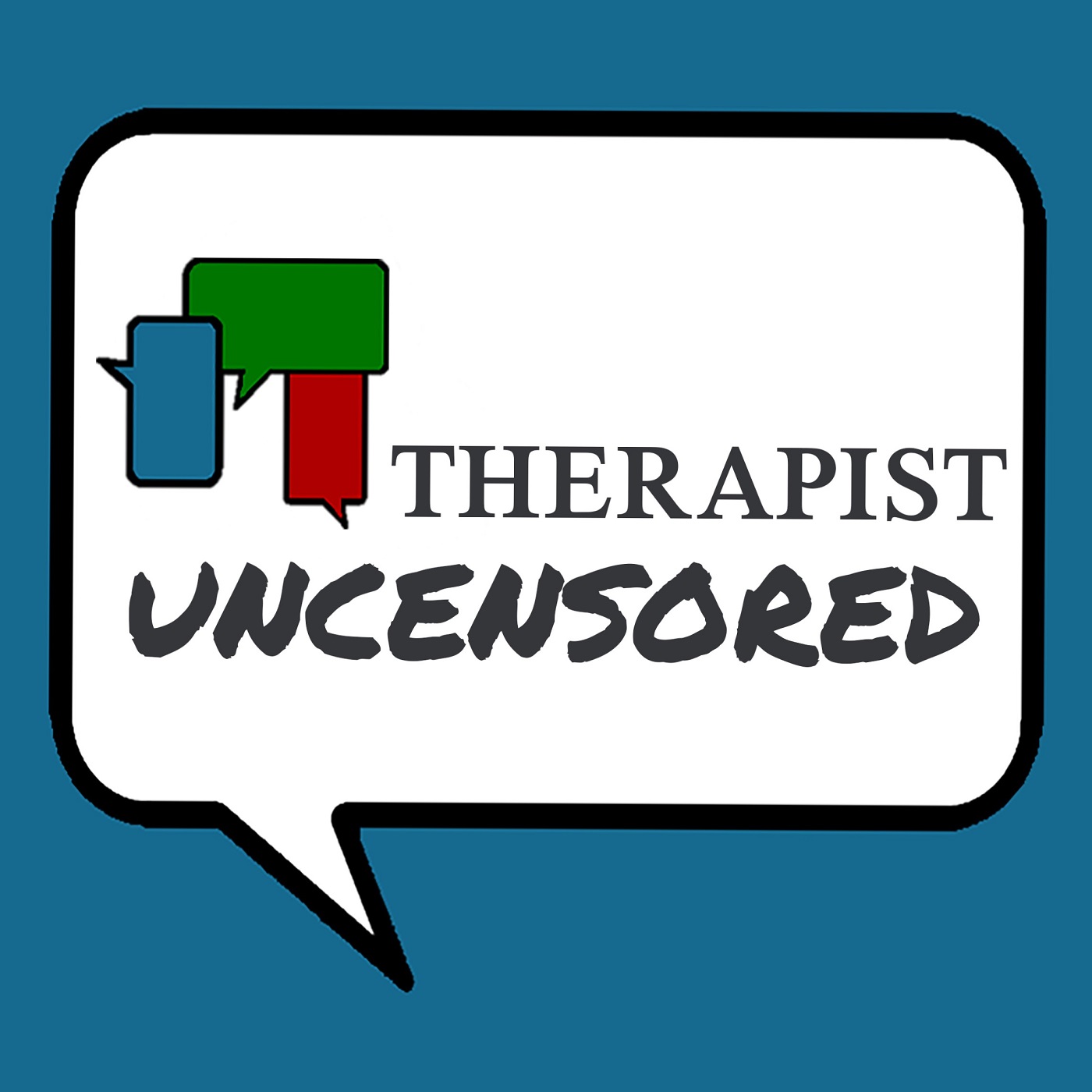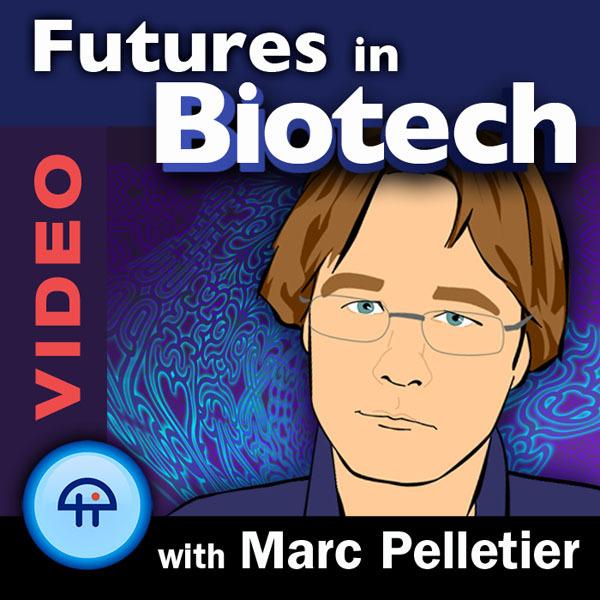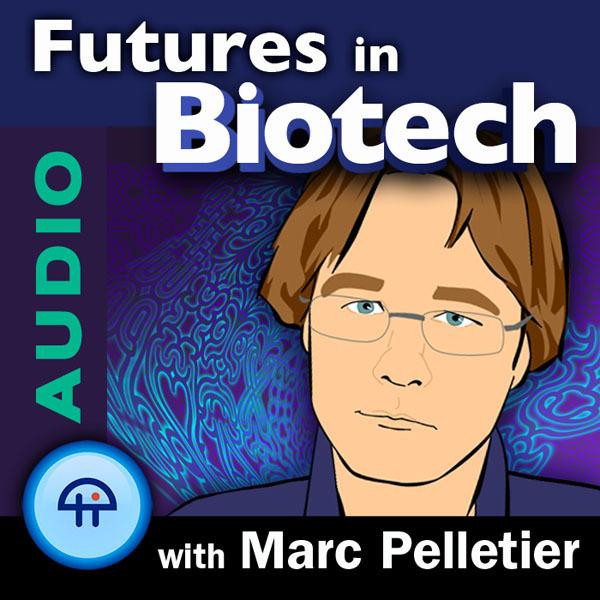Shows
 プロジェクトの秘訣を探る Project Design Room#21-4 アートと研究と事業の混ぜ方を学ぶ | 藤井 直敬(脳科学者・起業家)起業家、科学者、クリエイター、新時代を導くプロフェッショナルの原動力に迫るインタビューシリーズ。第21回目のゲストは、脳科学者・起業家の藤井 直敬さんです。番組では「プロジェクトデザイン」の視点から対話し、プロジェクト成功の秘訣を探ります。<ハイライト>・越境プロジェクトをうまく生かせるためのヒント・研究者と組む時はどんなことを意識するといい?・アーティストやデザイナーと組む時は?・ビジネスパーソンと組む時は?■藤井 直敬デジタルハリウッド大学大学院 教授株式会社ハコスコ 代表取締役社長東京大学先端研稲見研究室 客員研究員東北大学医学部卒、眼科医、東北大学医学部大学院にて博士課程終了、医学博士。98年よりMIT Ann Graybiel labでポスドク。2004年に帰国し、理化学研究所脳科学総合研究センターで副チームリーダーを経て、2008年より適応知性研究チームのチームリーダー。社会的脳機能の研究を行う。2014年に株式会社ハコスコを創業。【著書】「予想脳」(岩波出版)「つながる脳」(NTT出版 毎日出版文化賞受賞)「ソーシャルブレインズ入門」(講談社)「拡張する脳」(新潮社)2025-06-1522 min
プロジェクトの秘訣を探る Project Design Room#21-4 アートと研究と事業の混ぜ方を学ぶ | 藤井 直敬(脳科学者・起業家)起業家、科学者、クリエイター、新時代を導くプロフェッショナルの原動力に迫るインタビューシリーズ。第21回目のゲストは、脳科学者・起業家の藤井 直敬さんです。番組では「プロジェクトデザイン」の視点から対話し、プロジェクト成功の秘訣を探ります。<ハイライト>・越境プロジェクトをうまく生かせるためのヒント・研究者と組む時はどんなことを意識するといい?・アーティストやデザイナーと組む時は?・ビジネスパーソンと組む時は?■藤井 直敬デジタルハリウッド大学大学院 教授株式会社ハコスコ 代表取締役社長東京大学先端研稲見研究室 客員研究員東北大学医学部卒、眼科医、東北大学医学部大学院にて博士課程終了、医学博士。98年よりMIT Ann Graybiel labでポスドク。2004年に帰国し、理化学研究所脳科学総合研究センターで副チームリーダーを経て、2008年より適応知性研究チームのチームリーダー。社会的脳機能の研究を行う。2014年に株式会社ハコスコを創業。【著書】「予想脳」(岩波出版)「つながる脳」(NTT出版 毎日出版文化賞受賞)「ソーシャルブレインズ入門」(講談社)「拡張する脳」(新潮社)2025-06-1522 min プロジェクトの秘訣を探る Project Design Room#21-3 アートと研究と事業の混ぜ方を学ぶ | 藤井 直敬(脳科学者・起業家)起業家、科学者、クリエイター、新時代を導くプロフェッショナルの原動力に迫るインタビューシリーズ。第21回目のゲストは、脳科学者・起業家の藤井 直敬さんです。番組では「プロジェクトデザイン」の視点から対話し、プロジェクト成功の秘訣を探ります。<ハイライト>・越境プロジェクトをうまく生かせるためのヒント・研究者と組む時はどんなことを意識するといい?・アーティストやデザイナーと組む時は?・ビジネスパーソンと組む時は?■藤井 直敬デジタルハリウッド大学大学院 教授株式会社ハコスコ 代表取締役社長東京大学先端研稲見研究室 客員研究員東北大学医学部卒、眼科医、東北大学医学部大学院にて博士課程終了、医学博士。98年よりMIT Ann Graybiel labでポスドク。2004年に帰国し、理化学研究所脳科学総合研究センターで副チームリーダーを経て、2008年より適応知性研究チームのチームリーダー。社会的脳機能の研究を行う。2014年に株式会社ハコスコを創業。【著書】「予想脳」(岩波出版)「つながる脳」(NTT出版 毎日出版文化賞受賞)「ソーシャルブレインズ入門」(講談社)「拡張する脳」(新潮社)2025-06-1523 min
プロジェクトの秘訣を探る Project Design Room#21-3 アートと研究と事業の混ぜ方を学ぶ | 藤井 直敬(脳科学者・起業家)起業家、科学者、クリエイター、新時代を導くプロフェッショナルの原動力に迫るインタビューシリーズ。第21回目のゲストは、脳科学者・起業家の藤井 直敬さんです。番組では「プロジェクトデザイン」の視点から対話し、プロジェクト成功の秘訣を探ります。<ハイライト>・越境プロジェクトをうまく生かせるためのヒント・研究者と組む時はどんなことを意識するといい?・アーティストやデザイナーと組む時は?・ビジネスパーソンと組む時は?■藤井 直敬デジタルハリウッド大学大学院 教授株式会社ハコスコ 代表取締役社長東京大学先端研稲見研究室 客員研究員東北大学医学部卒、眼科医、東北大学医学部大学院にて博士課程終了、医学博士。98年よりMIT Ann Graybiel labでポスドク。2004年に帰国し、理化学研究所脳科学総合研究センターで副チームリーダーを経て、2008年より適応知性研究チームのチームリーダー。社会的脳機能の研究を行う。2014年に株式会社ハコスコを創業。【著書】「予想脳」(岩波出版)「つながる脳」(NTT出版 毎日出版文化賞受賞)「ソーシャルブレインズ入門」(講談社)「拡張する脳」(新潮社)2025-06-1523 min プロジェクトの秘訣を探る Project Design Room#21-2 アートと研究と事業の混ぜ方を学ぶ | 藤井 直敬(脳科学者・起業家)起業家、科学者、クリエイター、新時代を導くプロフェッショナルの原動力に迫るインタビューシリーズ。第21回目のゲストは、脳科学者・起業家の藤井 直敬さんです。番組では「プロジェクトデザイン」の視点から対話し、プロジェクト成功の秘訣を探ります。<ハイライト>・越境プロジェクトをうまく生かせるためのヒント・研究者と組む時はどんなことを意識するといい?・アーティストやデザイナーと組む時は?・ビジネスパーソンと組む時は?■藤井 直敬デジタルハリウッド大学大学院 教授株式会社ハコスコ 代表取締役社長東京大学先端研稲見研究室 客員研究員東北大学医学部卒、眼科医、東北大学医学部大学院にて博士課程終了、医学博士。98年よりMIT Ann Graybiel labでポスドク。2004年に帰国し、理化学研究所脳科学総合研究センターで副チームリーダーを経て、2008年より適応知性研究チームのチームリーダー。社会的脳機能の研究を行う。2014年に株式会社ハコスコを創業。【著書】「予想脳」(岩波出版)「つながる脳」(NTT出版 毎日出版文化賞受賞)「ソーシャルブレインズ入門」(講談社)「拡張する脳」(新潮社)2025-06-0916 min
プロジェクトの秘訣を探る Project Design Room#21-2 アートと研究と事業の混ぜ方を学ぶ | 藤井 直敬(脳科学者・起業家)起業家、科学者、クリエイター、新時代を導くプロフェッショナルの原動力に迫るインタビューシリーズ。第21回目のゲストは、脳科学者・起業家の藤井 直敬さんです。番組では「プロジェクトデザイン」の視点から対話し、プロジェクト成功の秘訣を探ります。<ハイライト>・越境プロジェクトをうまく生かせるためのヒント・研究者と組む時はどんなことを意識するといい?・アーティストやデザイナーと組む時は?・ビジネスパーソンと組む時は?■藤井 直敬デジタルハリウッド大学大学院 教授株式会社ハコスコ 代表取締役社長東京大学先端研稲見研究室 客員研究員東北大学医学部卒、眼科医、東北大学医学部大学院にて博士課程終了、医学博士。98年よりMIT Ann Graybiel labでポスドク。2004年に帰国し、理化学研究所脳科学総合研究センターで副チームリーダーを経て、2008年より適応知性研究チームのチームリーダー。社会的脳機能の研究を行う。2014年に株式会社ハコスコを創業。【著書】「予想脳」(岩波出版)「つながる脳」(NTT出版 毎日出版文化賞受賞)「ソーシャルブレインズ入門」(講談社)「拡張する脳」(新潮社)2025-06-0916 min プロジェクトの秘訣を探る Project Design Room#21-1 アートと研究と事業の混ぜ方を学ぶ | 藤井 直敬(脳科学者・起業家)起業家、科学者、クリエイター、新時代を導くプロフェッショナルの原動力に迫るインタビューシリーズ。第21回目のゲストは、脳科学者・起業家の藤井 直敬さんです。番組では「プロジェクトデザイン」の視点から対話し、プロジェクト成功の秘訣を探ります。<ハイライト>・越境プロジェクトをうまく生かせるためのヒント・研究者と組む時はどんなことを意識するといい?・アーティストやデザイナーと組む時は?・ビジネスパーソンと組む時は?■藤井 直敬デジタルハリウッド大学大学院 教授株式会社ハコスコ 代表取締役社長東京大学先端研稲見研究室 客員研究員東北大学医学部卒、眼科医、東北大学医学部大学院にて博士課程終了、医学博士。98年よりMIT Ann Graybiel labでポスドク。2004年に帰国し、理化学研究所脳科学総合研究センターで副チームリーダーを経て、2008年より適応知性研究チームのチームリーダー。社会的脳機能の研究を行う。2014年に株式会社ハコスコを創業。【著書】「予想脳」(岩波出版)「つながる脳」(NTT出版 毎日出版文化賞受賞)「ソーシャルブレインズ入門」(講談社)「拡張する脳」(新潮社)2025-06-0915 min
プロジェクトの秘訣を探る Project Design Room#21-1 アートと研究と事業の混ぜ方を学ぶ | 藤井 直敬(脳科学者・起業家)起業家、科学者、クリエイター、新時代を導くプロフェッショナルの原動力に迫るインタビューシリーズ。第21回目のゲストは、脳科学者・起業家の藤井 直敬さんです。番組では「プロジェクトデザイン」の視点から対話し、プロジェクト成功の秘訣を探ります。<ハイライト>・越境プロジェクトをうまく生かせるためのヒント・研究者と組む時はどんなことを意識するといい?・アーティストやデザイナーと組む時は?・ビジネスパーソンと組む時は?■藤井 直敬デジタルハリウッド大学大学院 教授株式会社ハコスコ 代表取締役社長東京大学先端研稲見研究室 客員研究員東北大学医学部卒、眼科医、東北大学医学部大学院にて博士課程終了、医学博士。98年よりMIT Ann Graybiel labでポスドク。2004年に帰国し、理化学研究所脳科学総合研究センターで副チームリーダーを経て、2008年より適応知性研究チームのチームリーダー。社会的脳機能の研究を行う。2014年に株式会社ハコスコを創業。【著書】「予想脳」(岩波出版)「つながる脳」(NTT出版 毎日出版文化賞受賞)「ソーシャルブレインズ入門」(講談社)「拡張する脳」(新潮社)2025-06-0915 min Evoke Greatness PodcastThe Science of Habit Formation: Rewiring Your Brain for SuccessSend us a text 🎧 Episode136: The Science of Habit Formation: Rewiring Your Brain for Success In this episode of Evoke Greatness, Sonnie delves into the fascinating world of habit formation and neuroplasticity. Drawing from recent scientific studies, she explores how understanding the science behind our habits can lead to profound personal transformation and success.Sonnie shares valuable insights on:The neuroscience behind habit formation and the "habit loop"The concept of neuroplasticity and its role in personal growthPractical strategies for forming new habits and breaking old onesThe power of consistency and small actio...2024-10-0409 min
Evoke Greatness PodcastThe Science of Habit Formation: Rewiring Your Brain for SuccessSend us a text 🎧 Episode136: The Science of Habit Formation: Rewiring Your Brain for Success In this episode of Evoke Greatness, Sonnie delves into the fascinating world of habit formation and neuroplasticity. Drawing from recent scientific studies, she explores how understanding the science behind our habits can lead to profound personal transformation and success.Sonnie shares valuable insights on:The neuroscience behind habit formation and the "habit loop"The concept of neuroplasticity and its role in personal growthPractical strategies for forming new habits and breaking old onesThe power of consistency and small actio...2024-10-0409 min À Toute Échelle17. La science des bonnes habitudesDans cet épisode on explore la litérature scientifique sur les habitudes.
Reférences
Lally, Phillippa, et al. "How are habits formed: Modelling habit formation in the real world." European journal of social psychology 40.6 (2010): 998-1009.
Wood, Wendy, and Dennis Rünger. "Psychology of habit." Annual review of psychology 67 (2016): 289-314.
Smith, Kyle S., and Ann M. Graybiel. "Habit formation." Dialogues in clinical neuroscience 18.1 (2016): 33.2022-03-2131 min
À Toute Échelle17. La science des bonnes habitudesDans cet épisode on explore la litérature scientifique sur les habitudes.
Reférences
Lally, Phillippa, et al. "How are habits formed: Modelling habit formation in the real world." European journal of social psychology 40.6 (2010): 998-1009.
Wood, Wendy, and Dennis Rünger. "Psychology of habit." Annual review of psychology 67 (2016): 289-314.
Smith, Kyle S., and Ann M. Graybiel. "Habit formation." Dialogues in clinical neuroscience 18.1 (2016): 33.2022-03-2131 min Orders of Magnitude20. The Science of Habit FormationAt the beginning of every year, people are always talking about their new year's resolution and about adopting healthy habits. But how exactly do you develop new habits? In this episode, Matheus guides us through some of the peer-reviewed literature about habit formation. What are habits? What do you need to form them? And how are scientists studying habits today?
Peer-reviewed references:
Lally, Phillippa, et al. "How are habits formed: Modelling habit formation in the real world." European journal of social psychology 40.6 (2010): 998-1009.
Wood...2022-02-1445 min
Orders of Magnitude20. The Science of Habit FormationAt the beginning of every year, people are always talking about their new year's resolution and about adopting healthy habits. But how exactly do you develop new habits? In this episode, Matheus guides us through some of the peer-reviewed literature about habit formation. What are habits? What do you need to form them? And how are scientists studying habits today?
Peer-reviewed references:
Lally, Phillippa, et al. "How are habits formed: Modelling habit formation in the real world." European journal of social psychology 40.6 (2010): 998-1009.
Wood...2022-02-1445 min The Better PrescriptionEP 13: HabitsYou might think that the habits you have now are the habits you will have forever, but this does not have to be the case. Although research has shown we do not break habits, we simply replace them, it is certainly possible to change life choices that no longer serve us. In today’s episode, Dr. Minni dives into some emerging research around habits and why the results from it have been so encouraging. We find out what happens in your brain when you form new habits, and Dr. Minni shares some actionable steps on how you can make ch...2021-09-2212 min
The Better PrescriptionEP 13: HabitsYou might think that the habits you have now are the habits you will have forever, but this does not have to be the case. Although research has shown we do not break habits, we simply replace them, it is certainly possible to change life choices that no longer serve us. In today’s episode, Dr. Minni dives into some emerging research around habits and why the results from it have been so encouraging. We find out what happens in your brain when you form new habits, and Dr. Minni shares some actionable steps on how you can make ch...2021-09-2212 min Jean Alessandro PodcastA neurociência dos hábitos - Pt 1 - Como se forma um hábito? Como opera no cérebro?Conheça meu curso Controlando a Ansiedade. https://controleaansiedade.com/ Faça uma terapia TCC comigo, agendar pelo Insta @jeanalessandropsi. Se gosta do Podcast, COMPARTILHA e marca nós!
Referências científicas (livros e artigos) Good habits, bad habits - Livro de Pan Mcmillan O poder do hábito - Livro de Charles Duhigg Hábitos atômicos - livro de James Clear The Craving Mind - livro de Judson Brewer Wardle et al (2010) - How are habits formed: Modelling habit formation in the real world. European Journal of Social Psycology. - artigo sobre o temp...2021-09-171h 05
Jean Alessandro PodcastA neurociência dos hábitos - Pt 1 - Como se forma um hábito? Como opera no cérebro?Conheça meu curso Controlando a Ansiedade. https://controleaansiedade.com/ Faça uma terapia TCC comigo, agendar pelo Insta @jeanalessandropsi. Se gosta do Podcast, COMPARTILHA e marca nós!
Referências científicas (livros e artigos) Good habits, bad habits - Livro de Pan Mcmillan O poder do hábito - Livro de Charles Duhigg Hábitos atômicos - livro de James Clear The Craving Mind - livro de Judson Brewer Wardle et al (2010) - How are habits formed: Modelling habit formation in the real world. European Journal of Social Psycology. - artigo sobre o temp...2021-09-171h 05 Culpa do CérebroComo o Cérebro Aprende e o Que Podemos Fazer Para Aprender Mais e MelhorInscreva-se no meu canal: https://bit.ly/andreimayer
INSTA: https://bit.ly/profandrei
TIKTOK: ttps://bit.ly/profandreineur0
E-MAIL: profandrei.neuro@gmail.com
Neste episódio explico O QUE É o aprendizado, discuto sobre a famosa PIRÂMIDE DO APRENDIZADO (que está errada!), explico o que realmente importa para o quanto e quão bem vamos aprender alguma coisa nova e, claro, falo de 3 estratégias, baseadas em evidências científicas, que podemos adotar para aprender (muito) MAIS E MELHOR! Deixem seus comentários, dúvidas e sugestões!
Re...2021-09-021h 26
Culpa do CérebroComo o Cérebro Aprende e o Que Podemos Fazer Para Aprender Mais e MelhorInscreva-se no meu canal: https://bit.ly/andreimayer
INSTA: https://bit.ly/profandrei
TIKTOK: ttps://bit.ly/profandreineur0
E-MAIL: profandrei.neuro@gmail.com
Neste episódio explico O QUE É o aprendizado, discuto sobre a famosa PIRÂMIDE DO APRENDIZADO (que está errada!), explico o que realmente importa para o quanto e quão bem vamos aprender alguma coisa nova e, claro, falo de 3 estratégias, baseadas em evidências científicas, que podemos adotar para aprender (muito) MAIS E MELHOR! Deixem seus comentários, dúvidas e sugestões!
Re...2021-09-021h 26 Culpa do CérebroComo Mudar Seus HÁBITOS, de Acordo com a NeurociênciaInscreva-se no meu canal: https://bit.ly/andreimayer
INSTA: https://bit.ly/profandrei
TIKTOK: ttps://bit.ly/profandreineur0
E-MAIL: profandrei.neuro@gmail.com
Neste episódio, explico O QUE É um hábito, como ele é formado e o que podemos fazer para FACILITAR esse processo. Discuto também HÁBITOS ANGULARES, sobre QUANTO TEMPO se leva para formar um novo hábito (não é 21 dias!!) e o que podemos fazer para controlar HÁBITOS RUINS.
Referências citadas:
1) Amaya KA and Smith KS (2018) - The Neurobiolo...2021-07-261h 18
Culpa do CérebroComo Mudar Seus HÁBITOS, de Acordo com a NeurociênciaInscreva-se no meu canal: https://bit.ly/andreimayer
INSTA: https://bit.ly/profandrei
TIKTOK: ttps://bit.ly/profandreineur0
E-MAIL: profandrei.neuro@gmail.com
Neste episódio, explico O QUE É um hábito, como ele é formado e o que podemos fazer para FACILITAR esse processo. Discuto também HÁBITOS ANGULARES, sobre QUANTO TEMPO se leva para formar um novo hábito (não é 21 dias!!) e o que podemos fazer para controlar HÁBITOS RUINS.
Referências citadas:
1) Amaya KA and Smith KS (2018) - The Neurobiolo...2021-07-261h 18 Neuroscientists Talk ShopEpisode 177 -- Ann Graybiel PhDThursday, October 12, 2017
Ann Graybiel (MIT) discusses her work on cortical-basal ganglia loops and habit formation.
Duration: 46 minutes
Discussants:(in alphabetical order)
Alfonso Apicella (Asst Prof, UTSA)
Carlos Paladini (Professor, UTSA)
Salma Quraishi (Res Asst Prof, UTSA)
Todd Troyer (Assoc Prof, UTSA)
Matthew Wanat (Asst Prof, UTSA)
Charles Wilson (Ewing Halsell Chair, UTSA)
acknowledgement: JM Tepper for original music.2017-10-1237 min
Neuroscientists Talk ShopEpisode 177 -- Ann Graybiel PhDThursday, October 12, 2017
Ann Graybiel (MIT) discusses her work on cortical-basal ganglia loops and habit formation.
Duration: 46 minutes
Discussants:(in alphabetical order)
Alfonso Apicella (Asst Prof, UTSA)
Carlos Paladini (Professor, UTSA)
Salma Quraishi (Res Asst Prof, UTSA)
Todd Troyer (Assoc Prof, UTSA)
Matthew Wanat (Asst Prof, UTSA)
Charles Wilson (Ewing Halsell Chair, UTSA)
acknowledgement: JM Tepper for original music.2017-10-1237 min Therapist Uncensored PodcastTU17: The Biology of Motivation and Habits: Why We Drop the BallIN THIS EPISODE: Biology of Motivation and Habits: Why We Drop the BallUnderstanding Research Behind Motivation and HabitsEven when it is so important to us, why is it that it’s so hard to follow through when we are trying to make or break habits? In this episode, we discuss research and biology around why it is so hard to change our patterns and stick to the goals we set for ourselves.
How we view our goals significantly impacts how we behave and the decisions we make. In general, people tend to have elevated levels of motivation and as...2017-01-1130 min
Therapist Uncensored PodcastTU17: The Biology of Motivation and Habits: Why We Drop the BallIN THIS EPISODE: Biology of Motivation and Habits: Why We Drop the BallUnderstanding Research Behind Motivation and HabitsEven when it is so important to us, why is it that it’s so hard to follow through when we are trying to make or break habits? In this episode, we discuss research and biology around why it is so hard to change our patterns and stick to the goals we set for ourselves.
How we view our goals significantly impacts how we behave and the decisions we make. In general, people tend to have elevated levels of motivation and as...2017-01-1130 min Therapist Uncensored PodcastTU14: How To Handle Post Election Tensions: Tips For The Holidays And BeyondIN THIS EPISODE:How To Handle Post Election Tensions: Tips For The Holidays And BeyondYou know the feeling you get when you find out that someone you know and like voted for the “wrong person” this past election? Ann Kelley, Patty Olwell and Sue Marriott discuss post-election tensions as they relate to family, neighbors and co-workers, and give tips on going home for the holidays.
If you are losing your mindApplying concepts from IPNB (interpersonal neurobiology), hosts discuss getting a deeper understanding of the very big feelings that have emerged with the surprise election results. While we are all sick of t...2016-11-2135 min
Therapist Uncensored PodcastTU14: How To Handle Post Election Tensions: Tips For The Holidays And BeyondIN THIS EPISODE:How To Handle Post Election Tensions: Tips For The Holidays And BeyondYou know the feeling you get when you find out that someone you know and like voted for the “wrong person” this past election? Ann Kelley, Patty Olwell and Sue Marriott discuss post-election tensions as they relate to family, neighbors and co-workers, and give tips on going home for the holidays.
If you are losing your mindApplying concepts from IPNB (interpersonal neurobiology), hosts discuss getting a deeper understanding of the very big feelings that have emerged with the surprise election results. While we are all sick of t...2016-11-2135 min Santiago Bilinkis – Futuro en ConstrucciónTemporada 4, Episodio 7: El cerebro en piloto automáticoAquí podés escuchar o descargar el audio del episodio 7 de la cuarta temporada de la columna de Gerry Garbulsky y Santiago Bilinkis en Basta de Todo, tal como salió al aire el 19 de mayo de 2015. En este programa hablamos sobre el modo en que nuestro cerebro crea y cambia hábitos.
Sobre TEDxRíodelaPlata
Ya pueden ver varias de las charlas de TEDxRíodelaPlataED!… Y también anotartse para el sorteo de entradas de TEDxRíodelaPlata 2015 que será el jueves 24 de septiembre en el predio de Tecnópolis.
Links de esta columna
Charle...2015-05-1936 min
Santiago Bilinkis – Futuro en ConstrucciónTemporada 4, Episodio 7: El cerebro en piloto automáticoAquí podés escuchar o descargar el audio del episodio 7 de la cuarta temporada de la columna de Gerry Garbulsky y Santiago Bilinkis en Basta de Todo, tal como salió al aire el 19 de mayo de 2015. En este programa hablamos sobre el modo en que nuestro cerebro crea y cambia hábitos.
Sobre TEDxRíodelaPlata
Ya pueden ver varias de las charlas de TEDxRíodelaPlataED!… Y también anotartse para el sorteo de entradas de TEDxRíodelaPlata 2015 que será el jueves 24 de septiembre en el predio de Tecnópolis.
Links de esta columna
Charle...2015-05-1936 min Futures in Biotech (Video)Light Up the Brain - Using optogenetics to study learning and cognition.
Using optogenetics to study learning and cognition.
Host: Marc Pelletier
Co-Host: Dave Brodbeck, Ph.D
Guest: Dr. Ann M. Graybiel
We invite you to read, add to, and amend our show notes.
Comments and suggestions on Futures in Biotech.
Also thanks to Phil Pelletier and Will Hall for the great themes.
Thanks to CacheFly for providing the bandwidth for this netcast.
2011-05-201h 08
Futures in Biotech (Video)Light Up the Brain - Using optogenetics to study learning and cognition.
Using optogenetics to study learning and cognition.
Host: Marc Pelletier
Co-Host: Dave Brodbeck, Ph.D
Guest: Dr. Ann M. Graybiel
We invite you to read, add to, and amend our show notes.
Comments and suggestions on Futures in Biotech.
Also thanks to Phil Pelletier and Will Hall for the great themes.
Thanks to CacheFly for providing the bandwidth for this netcast.
2011-05-201h 08 Futures in Biotech (Audio)Light Up the Brain - Using optogenetics to study learning and cognition.
Using optogenetics to study learning and cognition.
Host: Marc Pelletier
Co-Host: Dave Brodbeck, Ph.D
Guest: Dr. Ann M. Graybiel
Thanks to Phil Pelletier and Will Hall for the great themes.
Thanks to CacheFly for providing the bandwidth for this netcast.
2011-05-201h 08
Futures in Biotech (Audio)Light Up the Brain - Using optogenetics to study learning and cognition.
Using optogenetics to study learning and cognition.
Host: Marc Pelletier
Co-Host: Dave Brodbeck, Ph.D
Guest: Dr. Ann M. Graybiel
Thanks to Phil Pelletier and Will Hall for the great themes.
Thanks to CacheFly for providing the bandwidth for this netcast.
2011-05-201h 08